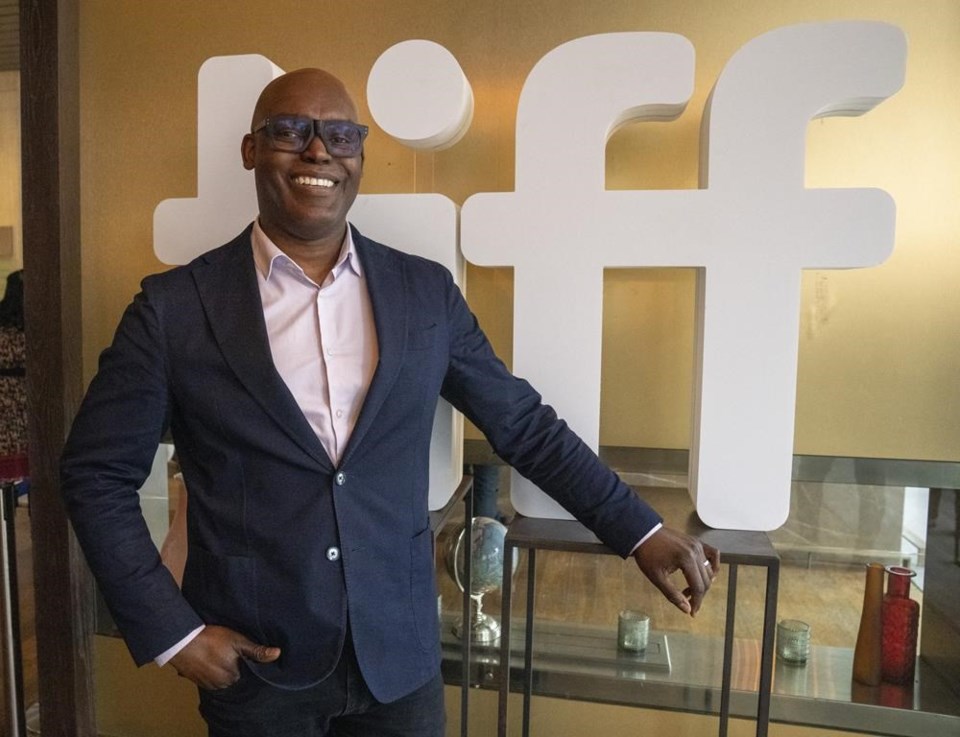Toronto International Film Festival CEO Cameron Bailey is determined to prove that the annual fest is still valuable at its core, despite this year's unwelcome changes and challenges.
The festival kicks off Thursday amid dual strikes by the Writers Guild of America and Screen Actors Guild—American Federation of Television and Radio Artists, which have affected the promotional plans for marquee films.
“Every organization like ours has had to adapt to whatever challenges have been thrown our way, including the pandemic…we’ve been here,” Bailey said in a phone interviewlast week.
“During our past 48 years, we’ve had to deal with the challenges of missing stars, economic ups and downs and the broader climate, all we can do is adapt to it…adapt and move forward.”
Despite the difficulties in putting on red-carpet events with a muted presence of Hollywood, TIFF promises a roster of international stars and filmmakers who are also household names — Spike Lee, Ava Duvernay and Guillermo del Toro among them.
“When the strike began, we got back in touch with our colleagues and were on the phone with those at the Venice, Telluride and New York Film festivals, comparing notes and figuring out how to best respond,” said Bailey. “On that end, I think we’re in a great place.”
However, in the weeks leading up to TIFF, another setback emerged when the festival's separation from its leading sponsor, Bell, was made public.
Bailey said they intended to announce Bell's departure after the festival, and TIFF still doesn't have a replacement sponsor lined up. The split also leaves room for another sponsor to eventually put its name on TIFF's downtown headquarters, currently known as the TIFF Bell Lightbox.
“We are with Bell through the end of 2023 and we’re only now in the process of getting the word out as the landscape has changed so much since we began our partnership with them,” Bailey said.
“TIFF is one of Canada’s best-known brands, so between everything else, we’re making an effort to find a partner who can step into this role, which in our eyes is someone well versed in the areas of streaming and international content — we’re confident we’ll find someone.”
Bailey acknowledged that this year's festival has lost some elements closely tied to its brand, but he doesn’t think that will deter many fans.
“Our ticket sales are as strong as ever, and I believe that the people who come to Toronto have a wide range of tastes which is what we’re offering,” he said.
But Frederick Blichert, a Montréal film critic and author, says that while he believes that TIFF has never solelydepended on glitzy gala premieres, the lack of star power will be noticeable.
“There’s no doubt that it will feel different this year, and maybe a bit diminished, but that will put a lot of important conversations into focus, which isn’t a bad thing,” said Blichert, noting that TIFF is more accessible to the public than other film festivals, such as Cannes and Venice, which focus primarily on press and industry.
“TIFF has to reflect the industry, to a certain extent, and the industry is in a pretty wild state of flux this year. It only makes sense for TIFF to be a part of that.”
In another break from TIFF tradition, Hayao Miyazaki’s “The Boy and the Heron” will kick off the festival’s opening night — the first time that a Japanese title or an animated movie has opened TIFF.
Meanwhile, actors-turned-directors, including notable names such as Sean Penn, Viggo Mortensen and Finn Wolfhard, are expected to attend despite the SAG strike because they will be promoting their work as filmmakers.
But with star wattage still significantly dimmed, Blichert said there may be an opportunity for lesser-known names to take centre stage even as the absence of Hollywood actors dominates the conversation.
“I can’t help but feel the effects of the film community taking this stand against the studios. But it’s also an opportunity for smaller indie projects to shine and take up more space than they’re usually given,” added Blichert.
Some up-and-coming directors are determined not to let the industry upheaval detract from the platform that TIFF provides.
Duane Crichton, co-director of the upcoming docuseries “Black Life: Untold Stories" premiering at TIFF, said that while the festival feels as vibrant as ever for filmmakers, the underlying mood feels different.
“I know quite a few people that aren’t working at this very moment due to the strike, but despite that, there’s a hope in the air that once that settles, the floodgates will open and everyone can get back to business as usual,” said Crichton, who is premiering a project at TIFF for the first time, at a recent event promoting the Canadian lineup.
“For me, just being at this festival, getting to talk to the media right now to get this series out is what TIFF is still about.”
Kelly Fyffe-Marshall, director of the Canadian-Jamaican coming-of-age film “When Morning Comes,” and co-director of the TV series “Bria Mack Gets a Life” premiering at TIFF, says the chance to present her work and connect with audiences is one of the core values of the festival.
“When I premiered my film 'When Morning Comes,' for my mother at TIFF last year, she finally had an understanding of what I did,” said Fyffe-Marshall. “But with that audience and atmosphere, she told me that she finally understood what I did as a filmmaker…TIFF was her 'aha' moment. With everything going on, that’s still special.”
This report by The Canadian Press was first published Sept. 6, 2023.
Noel Ransome, The Canadian Press


